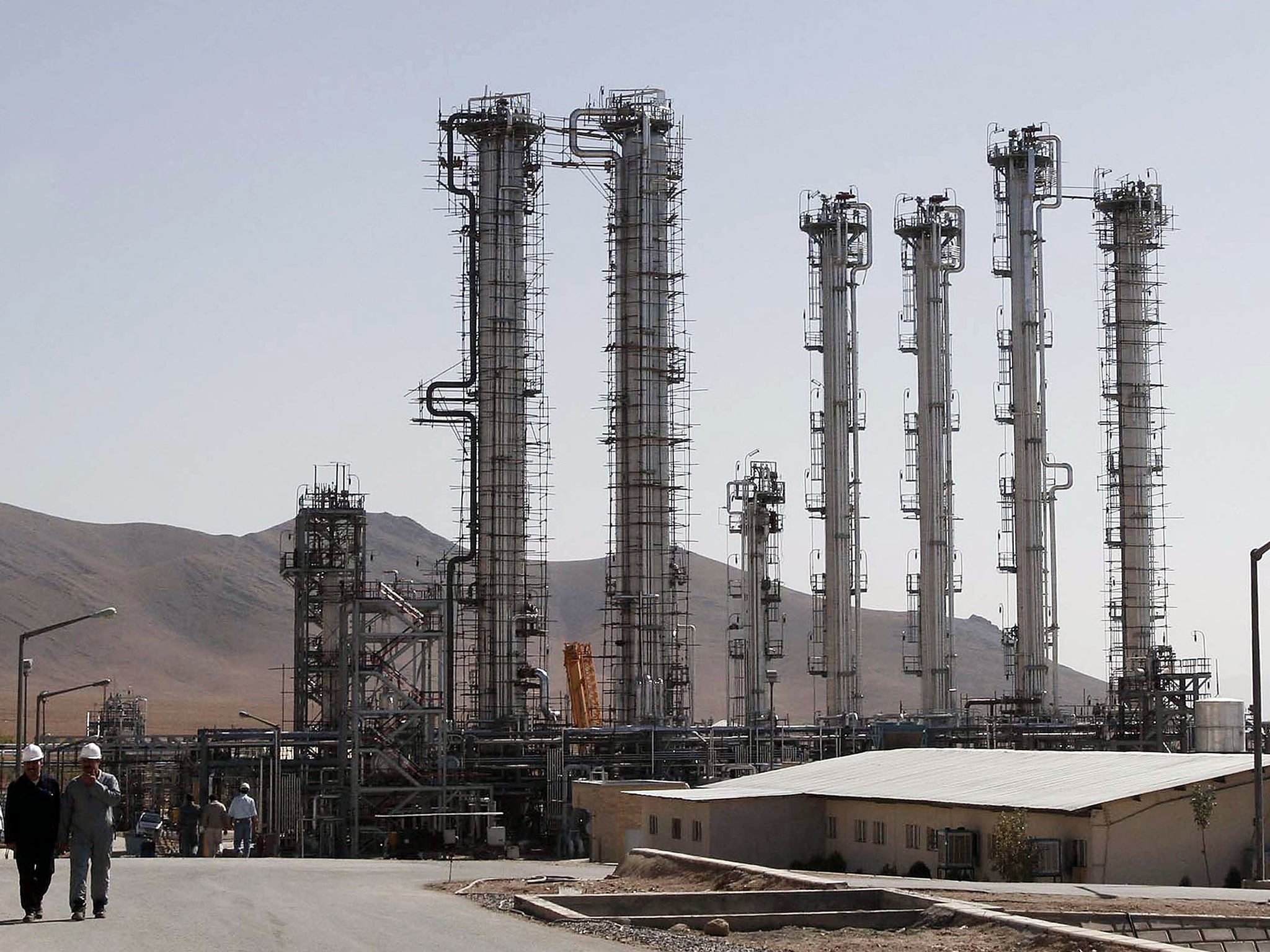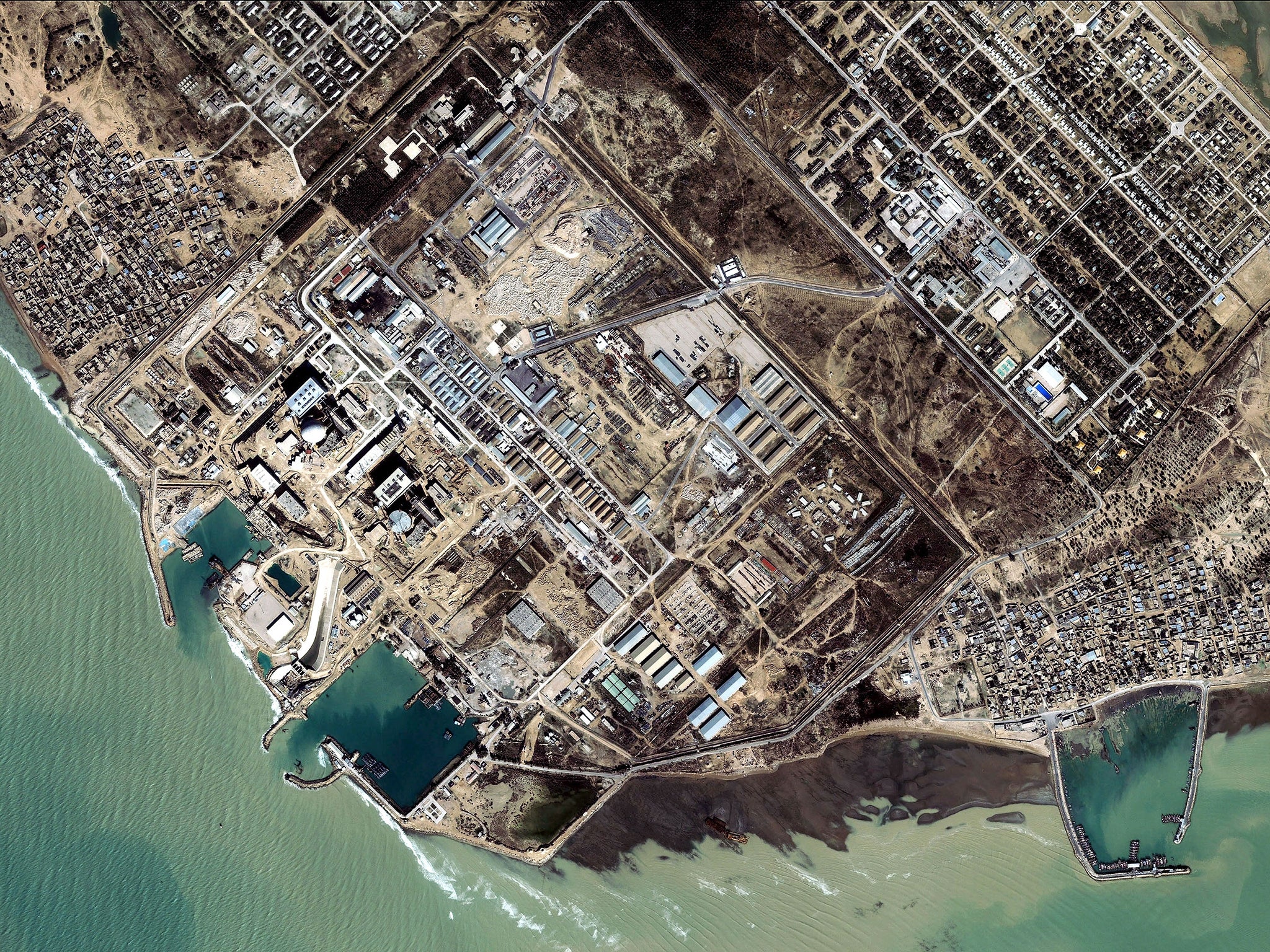Iran begins work on second nuclear power reactor in defiance of deal
Development emerges 18 months after Donald Trump unilaterally withdrew the US from the accord in May 2018

Your support helps us to tell the story
From reproductive rights to climate change to Big Tech, The Independent is on the ground when the story is developing. Whether it's investigating the financials of Elon Musk's pro-Trump PAC or producing our latest documentary, 'The A Word', which shines a light on the American women fighting for reproductive rights, we know how important it is to parse out the facts from the messaging.
At such a critical moment in US history, we need reporters on the ground. Your donation allows us to keep sending journalists to speak to both sides of the story.
The Independent is trusted by Americans across the entire political spectrum. And unlike many other quality news outlets, we choose not to lock Americans out of our reporting and analysis with paywalls. We believe quality journalism should be available to everyone, paid for by those who can afford it.
Your support makes all the difference.Iran has started construction on a second nuclear reactor at a power plant that Tehran cites as its reason for breaking the enrichment limit set by the unravelling 2015 nuclear deal with world powers.
Officials celebrated the start of construction at the Bushehr facility, but the politics of the moment were not lost on them as a US pressure campaign of sanctions blocks Tehran from selling crude oil abroad.
The sanctions took effect after Donald Trump unilaterally withdrew the US from the accord in May 2018, lighting the fuse for the tensions now gripping the wider Middle East.
“It was not us who started breaking commitments, it was them who did not keep to their commitments and cannot accept the nuclear deal atrs a one-way road map,” said Ali Akbar Salehi, head of the Atomic Energy Organisation of Iran.
Bushehr is fuelled by uranium produced in Russia and is monitored by the United Nations’ International Atomic Energy Agency (IAEA).
But Iran began 4.5 per cent enrichment in part to supply Bushehr, despite the deal limiting it to 3.67 per cent.
While this is still nowhere near weapons-grade levels of 90 per cent, nonproliferation experts warn that Iran’s growing stockpile and increasing enrichment will begin to shave off time from the estimated year Tehran would need to gather enough material for an atomic bomb.
Iran has long maintained its enrichment is for peaceful purposes, though the deal was designed to limit its program in exchange for the lifting of international sanctions.
Those limits blocked its path to being able to have enough material for a bomb.
Concrete was poured into the prepared base of the second reactor in Bushehr, which is 440 miles south of Tehran, as journalists watched on Sunday.
Officials say the new reactor, and a third planned to be built, will each add more than 1,000 megawatts to Iran’s power grid.
It is being built with assistance from Russia, which helped bring Bushehr’s first reactor online in 2011 after decades of delays.

Mr Salehi praised the plant’s operations, saying: “The security of this power plant has been provided by the armed forces, and its safety has been endorsed by international institutions.”
This comment appeared to be a dig at Gulf Arab states opposed to Tehran, who earlier raised concerns to the IAEA that Bushehr was a risk to the wider region over earthquakes that routinely hit Iran.
Meanwhile, Iran’s foreign ministry spokesman rejected claims by the US and Israel over allegations of nuclear material being discovered at an undeclared site outside Tehran.
An IAEA meeting last week appeared to include discussions over what Benjamin Netanyahu, the Israeli prime minister, described in a United Nations speech last year as a “secret atomic warehouse”.
The IAEA has said Iran “carried out activities relevant to the development of a nuclear explosive device” in a “structured program” through to the end of 2003.
Israeli officials allege material recovered from the warehouse came from that program.
“The Zionist regime and others are trying to re-open this case. We don’t accept this and we condemn these efforts,” Iran’s foreign ministry spokesman said.
Associated Press
Join our commenting forum
Join thought-provoking conversations, follow other Independent readers and see their replies
Comments